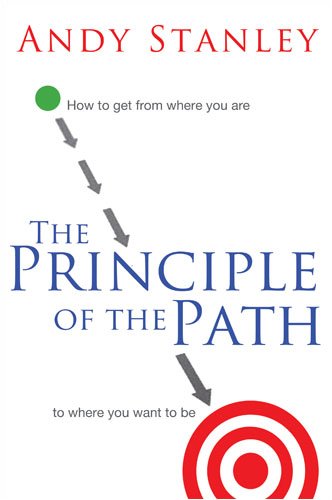 I will be attending the Leadership Summit, a conference for leaders in Christian ministry and in the business world, next Thursday and Friday. I will have the opportunity to receive two academic credits toward the M.A. in Christian Leadership that I am working on at Sioux Falls Seminary. One of the requirements for the credits is to read 800 pages in books from authors that are speaking at or have spoken at the Leadership Summit and keep a reading journal with each book read.
I will be attending the Leadership Summit, a conference for leaders in Christian ministry and in the business world, next Thursday and Friday. I will have the opportunity to receive two academic credits toward the M.A. in Christian Leadership that I am working on at Sioux Falls Seminary. One of the requirements for the credits is to read 800 pages in books from authors that are speaking at or have spoken at the Leadership Summit and keep a reading journal with each book read.
I’ve opted to take a bit of a unique approach by interacting with each book that I read on my personal blog so that I can share what I’m learning with those around me.
The first text that I chose to read was written by one of last year’s Leadership Summit speakers, Andy Stanley. I didn’t have the opportunity to attend last year’s summit because of a trip to New York, but have enjoyed some of the resources of the speakers in retrospect. Andy Stanley is the pastor of Northpoint Community Church in Atlanta. I am a proponent of many of the messages that he brings, such as the importance of having margin in one’s life, and am very interested in the approach that Northpoint took when building their church—creating a church that un-churched people like to go to.
“The Principle of the Path” is the book that I chose to read written by Andy Stanley. He’s a rather prolific writer and has written a number of books, but I opted for this one because it communicates a really powerful principle that many of us ignore. The core message of the book is that we have the choice to go down many paths in life, if we go down certain paths we will almost certainly lead at a given destination. If you live on less than you make, save for the future and work to improve your career, you will almost certainly be wealthy by the time you retire. If you work out, stay active and eat right, eventually you will lose weight and become healthy. If you’re a Christian and practice the spiritual disciplines on a regular and ongoing basis, eventually, you’re going to have a great relationship with God.
The Principle of the Path also works in a negative direction. If you don’t keep track of what you eat, don’t bother to work out and see the inside of a restaurant on a daily basis, you’re going to become overweight at some point in the future. Many people wander down negative paths without even realizing it, often ending in very bad situations, such as bankruptcy or a heart attack.
After reading this book, I asked myself, “What paths am I going down?” My wife and I are on a very solid financial path. We are debt free, have an emergency fund, live on less than we make and are saving for the future. Ultimately, God is the source of resources we’ve received, but we aim to manage it well. If we keep managing God’s resources well, we will hopefully be blessed with more to manage (Matthew 25:14-30).
In terms of my spiritual life, there are some things that I’m doing positively, but there are definitely some things I could do better. I’m currently memorizing two verses of scripture per week by way of the topical memory system and am on a daily Bible reading plan. I have not yet been able to make prayer a strong priority in my life, but I do pray. Overall, I’m probably moving on the right path in my spiritual life, but I could certainly be moving down that path a lot faster.
One path that I definitely need to make a change in direction is my personal wellness. In college, I counted calories and worked out several times per week. I went from weighing 177 pounds down to 153. Since then, I’ve hovered around 155-160, but this summer I have gotten back up to 167. I do elliptical on a regular basis, but could stand for some more intense exercise. Also, I need to break up with Little Debbie and her delicious snack cakes. I’ve gotten sloppy to say the least!
What paths are you on? Do you need to change directions?
